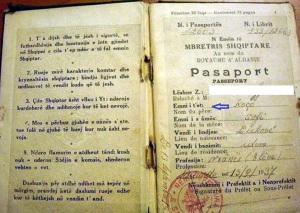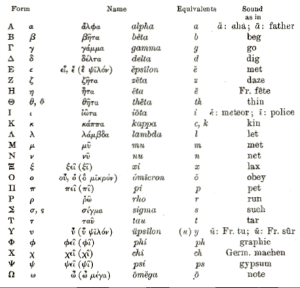The people are interested to know the ethymology of the words sometime, or anytime if you are a person who likes the languages and their origin. So it’s natural to open an Etimology Dictionary(usually to take the wrong information). So did we, being interested for the word ethnic, we opened the ONLINE ETYMOLOGY DICTIONARY:
comb. form of Gk. ethnos “people, nation, class” (see ethnic), used to form modern compounds such as ethnology (1842, by J.S. Mill) and ethnocentric, 1900, which was a technical term in social sciences until it began to be more widely used in the second half of the 20th century.
c.1375, from Scottish, “heathen, pagan,” and having that sense first in Eng., from Gk. ta ethne, used in Septuagint translation to render Heb. goyim, pl. of goy “nation,” especially of non-Israelites, hence “Gentile nation.” Ta ethne is from Gk. ethnos “band of people living together, nation, people,” prop. “people of one’s own kind,” from PIE *swedh-no-, suffixed form of base *s(w)e- (see idiom). Sense of “peculiar to a race or nation” is 1851, return to the word’s original meaning; that of “different cultural groups” is 1935; and that of “racial, cultural or national minority group” is Amer.Eng. 1945. Ethnicity is from 1953; ethnic cleansing is from 1991.
At this point we are stunned. Ethnos –according to the “proffesional linguists”-derives from PIE *swedh-no-, suffixed form of base *s(w)e.
This ridiculous explanation, like the most of them in the Etymology WORLD (especially those related with “Greek” origin) made us performing a research for the origin of the word ethnos or ta ethne.
We all know that historically all the ethnic groups, all the nations, all the tribes have a common predecessor or a common father.
Since the word ethne comes from the Ancient “Greek” World(or better saying Pelasgian) we have to show some examples from this World.
The tribe of HERACLIDES was called so because of Heracles(Hercules) their FATHER.
The tribe of AECIDES was called this way because of Aecus(of Aegina) their father, their founder
The tribe of DORIANS was called this form because of Dorus, their founder and predecessor.
The examples are infinite, and we all know the importance of the FATHER during the creation of the ethnic group, the tribe, the race, the nation in the most of IE tribes. The father is at the same time the LIDER and the GENETIC creator. His sperm is the GENETIC code biologocially descended in the all incoming generations.
Since we are talking about the Ancient “Greeks” lets have a look to the Ancient Greek-English Dictionary to confirm what we said above:
It is obvious that the English words race, tribe, nationcorrespond to the “Greek” words genos, ethnos, sperma.
The last one denotes the biological relation of the male, or the father founder with the tribe itself. Let see now how do the Europians today pronounce FATHER, in their respective languages:
atë(alb)
atë(alb)
πατέρας(new greek)
father(eng)
отец(Russian)
padre(ital)
vater(german)
vader(dutch)
pater(mycenian)
padre(Spanish)
It is very understandable that the ROOT of this word for all the Europian languages is AT(e). In some of them we have a transformation from t –d but this is very normal since d is the voiced correspondent of the voiceless consonant t.
Also another small difference from language to language is the using of o instead of a in some of them. The truth is that in all of them are using similar vowel
ɔ/ɑ
|
Open-mid back rounded vowel
|
pawed 2
|
or
ɑ/ɑ
|
Open back unrounded vowel
|
bra
|
which actually dont make any essential leksical difference.
Even within Albanian language we have ɔt(gheg) orât or at(tosk) those two vowels are used to replace each –other in the two main dialects,
Standard form
|
Tosk form
|
Gheg form
|
Translation
|
Shqipëri
|
Shqipëri
|
Shqypni/ Shqipni
|
Albania
|
një
|
një
|
nji / njâ/ njo
|
a/one
|
nëntë
|
nëntë
|
nândë/nant/non
|
nine
|
është
|
është
|
âsht /osht/ â
|
is
|
bëj
|
bëj
|
bâj/boj
|
do
|
emër
|
emër
|
êmën
|
name
|
pjekuri
|
pjekuri
|
pjekuni
|
maturity
|
The Albanian atë is very close to the primitive IE root at, not saying it is eventually the same.
English (4 entries.)
|
Shqip (4 hyrje.)
|
father
|
atë {m}, babë {f}, baba {m}
|
father’s name
|
atësi {f} (shumës atësia)
|
The word at in Albanian, derives from the interjection ta-ta ~ tat at of the child babble and easily can be considered onomatopeic. The same story is with the preffix pa which is viewed in some of the IE languages word beginning including Ancient Greek:
The greek word is patër and includes the pa as well.
Like we said above, it is the child babble pa-pa-pa which determines the ‘birth’ of the word father.
The same thing we could say for ba-ba which is another synonim for father in Albanian language.
Now let see how does the plural of AT is in Albanian
Standard form
|
Tosk form
|
Gheg form
|
Translation
|
Shqipëri
|
Shqipëri
|
Shqypni/ Shqipni
|
Albania
|
atë
|
atë
|
âtë
|
father
|
etër-atër
|
etër(atër)
|
etën
|
fathers
|
Fragment Albanian passport 1937
We explained above that nation or ethnos or patër (anc. Greek) is the people who are descended from a common father, or better saying common FATHERS, and it appears almost the same with the Albanian word etën with the only difference that we have e/ë instead of h.
Now let explain why does occur this “”difference””.
In the old Attic alphabet Η or heta represented the h-sound. In the Ionic alphabet, the same symbol represented a vowel, eta, because the Ionic dialect had lost aspirations and had no need for heta. When the Ionic alphabet was adopted in Athens (2nd half of the 5th cent. B.C.E.), the h-sound was no longer represented in writing.
After this explanation is obvious that the “””greek””” word ethn(ΕΘΝ-ΟΣ) is eventually the Albanian word etën which completely describes what ethnos means and why in albanian the homeland is called ATDHE which means AT(father) + DHE(land), The land of the father/fathers.
Inside the veins of Ancient Greeks flows the Albanian blood and vice-verca, the ethnos of the Helenes who spoke eventually the Pelasgian language are the Albanians today. The amnesia{Ἀμνησία~a-menja-zi(alb)-eshte mendja keq} is slowly fading out, because the Fathers are calling from antiquity: Do not forget the history. Do not forget us.



No comments:
Post a Comment